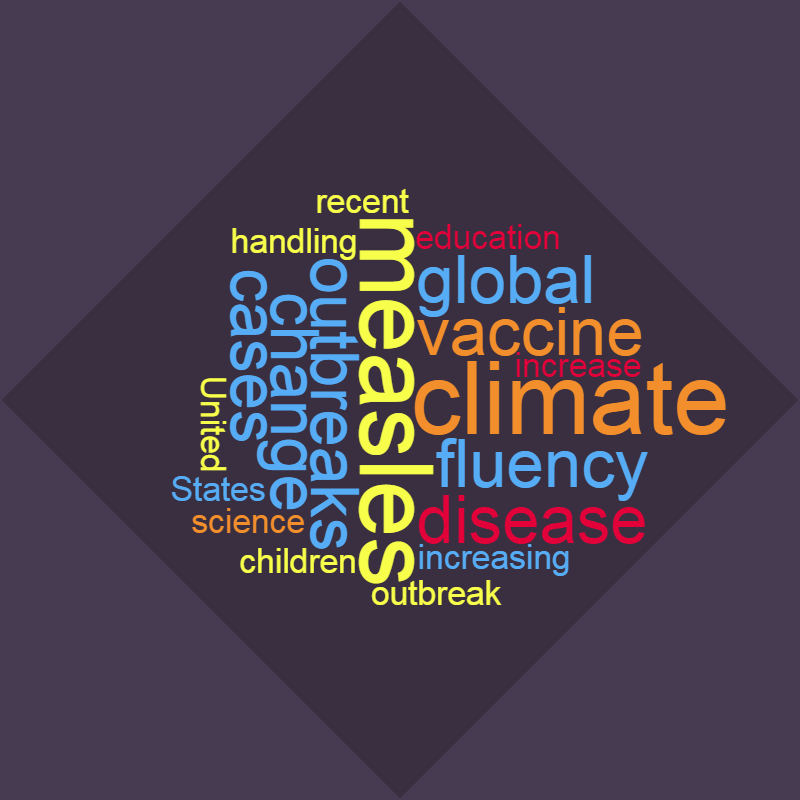A Single Day to Transform Scientific Understanding
Written on
Chapter 1: The Question of Impact
Can a single day truly effect change? While there is a growing body of scientific evidence regarding global warming, a 2018 Gallup survey highlights a stark division among Americans about its existence. Could improved understanding of science alter the views of skeptics?

This week, India is set to commemorate National Science Day, marking its 32nd occurrence. Established in 1987, the Indian government designated February 28 to honor scientific achievements, coinciding with Sir C.V. Raman's groundbreaking discovery of the Raman effect in 1928. This phenomenon illustrates that light interacting with molecules can change wavelengths, a principle now leveraged in various fields from counterfeit drug detection to explosive identification.
Recent years have ushered in remarkable scientific advancements, from new treatments for longstanding diseases to the development of nanoscale robots, and even a car en route to Mars. During this period, an overwhelming amount of data has been collected—it's estimated that 90% of all existing data was generated in the last two years alone. To make the most of these scientific breakthroughs and effectively utilize the data we've amassed, a solid grounding in scientific principles will be invaluable.
Would instituting a National Science Day in the United States foster greater fluency in STEM—science, technology, engineering, and mathematics—thus enhancing our lives?
Section 1.1: Health Concerns and Vaccination
In 2019, the CDC recorded multiple measles outbreaks, with over 130 cases across at least ten states, predominantly among unvaccinated individuals—over 80% of whom were confirmed not to have received vaccinations. Additionally, 5–10% of cases involved individuals who either had incomplete vaccination records or could not recall their vaccination status.
Measles, a disease known for its high contagion rates, can lead to serious health complications like pneumonia and encephalitis. Despite this, an increasing number of individuals are opting out of the MMR (measles, mumps, and rubella) vaccine. The recent outbreaks have been particularly concentrated in states that allow non-medical exemptions, which encompass both religious and philosophical grounds.
The controversial 1998 study that anti-vaccine advocates often cite has been thoroughly discredited, with a 2004 retraction from 10 of the 12 authors clarifying that no causal relationship between the MMR vaccine and autism was established due to insufficient data. Nevertheless, scientists continuously dedicate time and resources to advocate for vaccine efficacy and to counter the misleading claims of anti-vaccine proponents.
Enhancing scientific literacy could empower individuals to interpret data linking states with non-medical exemptions to a higher risk of diseases that, until the 1990s, were nearly eradicated.
Dinah Washington: What Difference A Day Makes – This classic tune resonates with the theme of acknowledging the impact of each day, especially in the context of scientific understanding and public health.
Section 1.2: Safety Measures in Transportation
A 2016 report from the National Highway Traffic Safety Administration (NHTSA) indicated that 262 children aged 8 to 12 died in car accidents, with nearly half of those not wearing seat belts. These statistics are as concerning as the vaccine-preventable disease outbreaks. In both cases, adults hold the power to make choices that protect children under their care, yet many fail to do so. This lapse in judgment may stem from a limited understanding of the science that informs evidence-based decisions—a gap that can be bridged through improved scientific fluency.
Chapter 2: The Value of National Science Day
Establishing a specific day to promote scientific awareness may not be a cure-all, but it represents a significant step forward. In our fast-paced news environment, opportunities for reflection are scarce. Designating a National Science Day could serve as a moment to pause, appreciate the achievements of science and scientists, and illuminate the future trajectory of science in society. I believe that such an initiative would bring us closer to achieving greater scientific literacy. As Louis Pasteur poignantly stated, “Science is the highest personification of the nation because that nation will remain the first which carries the furthest the works of thought and intelligence.”
What A Difference A Day Makes – This video encapsulates the importance of each day and its potential impact on our understanding and choices regarding science and health.